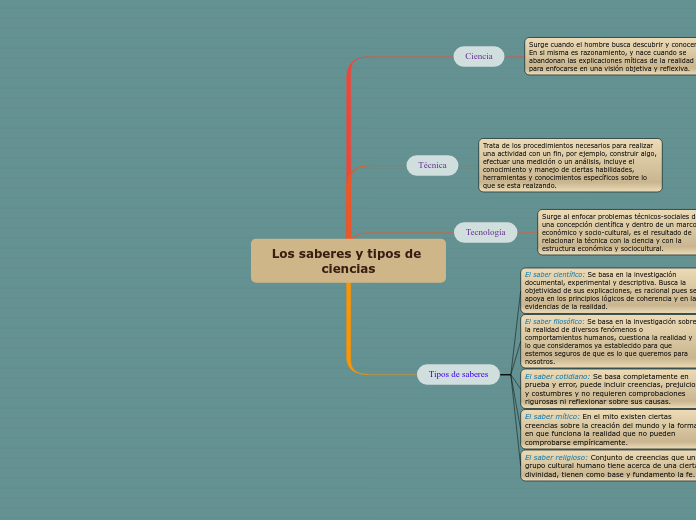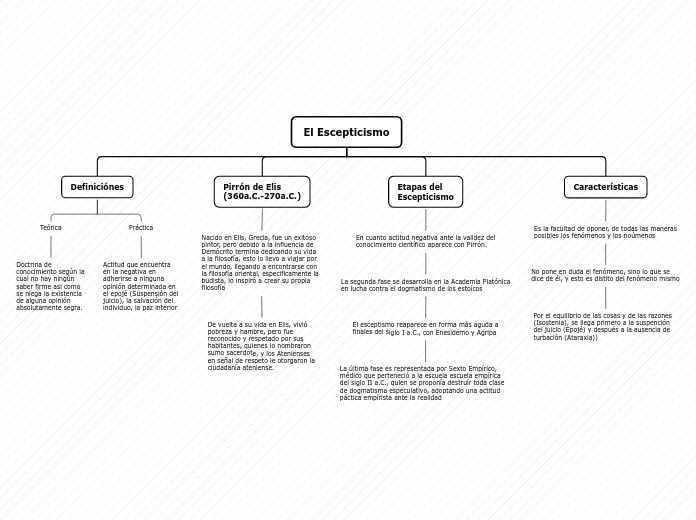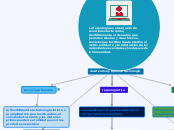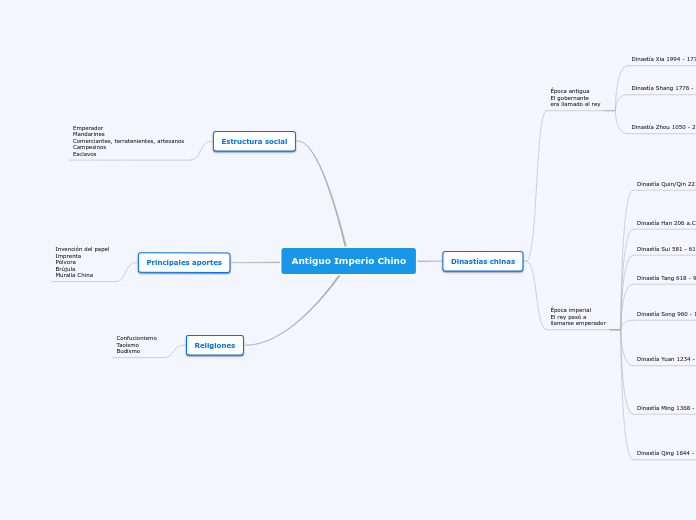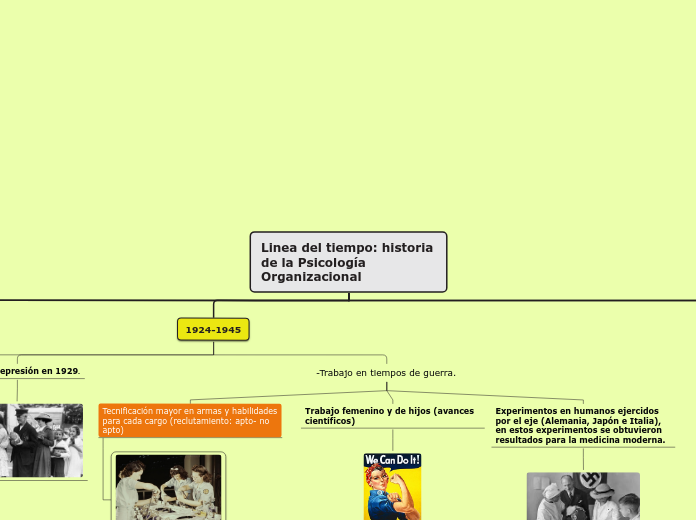Los saberes y tipos de ciencias
To name your story, you have to think about the overall message and what you want your audience to understand from the story. Also, make it relevant and easy to remember.
Tipos de saberes
El saber religioso: Conjunto de creencias que un grupo cultural humano tiene acerca de una cierta divinidad, tienen como base y fundamento la fe.
El saber mítico: En el mito existen ciertas creencias sobre la creación del mundo y la forma en que funciona la realidad que no pueden comprobarse empíricamente.
El saber cotidiano: Se basa completamente en prueba y error, puede incluir creencias, prejuicios y costumbres y no requieren comprobaciones rigurosas ni reflexionar sobre sus causas.
El saber filosófico: Se basa en la investigación sobre la realidad de diversos fenómenos o comportamientos humanos, cuestiona la realidad y lo que consideramos ya establecido para que estemos seguros de que es lo que queremos para nosotros.
El saber científico: Se basa en la investigación documental, experimental y descriptiva. Busca la objetividad de sus explicaciones, es racional pues se apoya en los principios lógicos de coherencia y en las evidencias de la realidad.
Tecnología
The ending of a story is essential. We all know that if the ending is weak, what happened before loses its importance. So make it unpredictable, but fair. A resolved ending answers all the questions and ties up any loose threads from the plot.
Surge al enfocar problemas técnicos-sociales desde una concepción científica y dentro de un marco económico y socio-cultural, es el resultado de relacionar la técnica con la ciencia y con la estructura económica y sociocultural.
This is the closure section of the story.
See examples of possible outcomes below:
- all problems have been solved
- it's clear how each one of your characters ends up
- your main character is transformed by the challenge
Técnica
The middle of the story is where you add layers of complications that will lead to the end. Reveal more about the character's journey. Did their personality go through changes? How did they overcome the challenges? And as you build up the story’s central conflict, make it more personal to that character. Also, from the middle act, you have to lead into the final act.
Trata de los procedimientos necesarios para realizar una actividad con un fin, por ejemplo, construir algo, efectuar una medición o un análisis, incluye el conocimiento y manejo de ciertas habilidades, herramientas y conocimientos específicos sobre lo que se esta realzando.
There wouldn't be any tension and excitement in your story if there weren't any obstacles in your character's way.
Ciencia
In the beginning of the story (or the exposition), you will need to introduce the setting and characters. You might also want to introduce the main conflict. This part of the story is important because it gives the reader necessary background information and maybe even a first insight into a character’s personality.
Surge cuando el hombre busca descubrir y conocer. En si misma es razonamiento, y nace cuando se abandonan las explicaciones míticas de la realidad para enfocarse en una visión objetiva y reflexiva.
Characters are essential to a good story. Usually, the protagonist(s) is/are the most affected by the plot. Introduce a character by focusing on their actions, interests, and occupation, as the physical appearance doesn't make a difference in most cases.
Ciencias formales:
Se ocupan de crear entes lógicos y matemáticos y establecer las relaciones entre ellos, son estructuras y formas del pensamiento que no existen como el resto de las cosas en la realidad, sino que solo existen en la mente humana, se basan en el razonamiento deductivo para demostrar o probar la razón, por lo cual las matemáticas y la lógica se consideran ciencias deductivas, requieren que el pensamiento establezca relaciones entre signos y use la lógica para demostrar sus teoremas.
Se clasifica en lógica y matemáticas.
Ciencias fácticas:
Type in the name of your character.
Toman como objeto de estudio directamente los objetos y hechos de la realidad, buscan obtener un conocimiento objetivo, para confirmar sus posibles explicaciones (hipótesis) requieren de la observación, experimentación y están siempre abiertas a la renovación y corrección de conocimientos previos, se basan fuera de la mente, dirigiendo la atención a objetos y procesos concretos.
What is your character's main goal?
fight Evilfind lovedefeat his/her enemyrule the worldmake friendstime travelmake an awesome discoveryOther
Se clasifican en naturales: Física, biología y química y sociales: psicología, sociología, economía, ciencias políticas, historia material y historia de las ideas.
